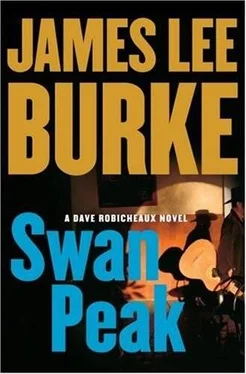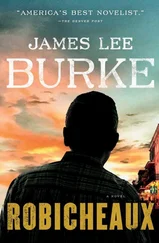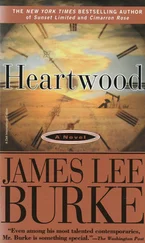James Burke - Swan Peak
Здесь есть возможность читать онлайн «James Burke - Swan Peak» весь текст электронной книги совершенно бесплатно (целиком полную версию без сокращений). В некоторых случаях можно слушать аудио, скачать через торрент в формате fb2 и присутствует краткое содержание. Жанр: Триллер, на английском языке. Описание произведения, (предисловие) а так же отзывы посетителей доступны на портале библиотеки ЛибКат.
- Название:Swan Peak
- Автор:
- Жанр:
- Год:неизвестен
- ISBN:нет данных
- Рейтинг книги:5 / 5. Голосов: 1
-
Избранное:Добавить в избранное
- Отзывы:
-
Ваша оценка:
- 100
- 1
- 2
- 3
- 4
- 5
Swan Peak: краткое содержание, описание и аннотация
Предлагаем к чтению аннотацию, описание, краткое содержание или предисловие (зависит от того, что написал сам автор книги «Swan Peak»). Если вы не нашли необходимую информацию о книге — напишите в комментариях, мы постараемся отыскать её.
Swan Peak — читать онлайн бесплатно полную книгу (весь текст) целиком
Ниже представлен текст книги, разбитый по страницам. Система сохранения места последней прочитанной страницы, позволяет с удобством читать онлайн бесплатно книгу «Swan Peak», без необходимости каждый раз заново искать на чём Вы остановились. Поставьте закладку, и сможете в любой момент перейти на страницу, на которой закончили чтение.
Интервал:
Закладка:
I believed our climb up to the crime scene was a morbid waste of time. Even though the tape was broken, we had no right to go inside what was obviously a proscribed evidentiary area. Second, the ground was soft and already crisscrossed with the footprints of investigative personnel. In all probability, any forensic evidence there had already been removed, disturbed, tainted, or destroyed.
Except for one element that was still in plain view: blood splatter on a rock the size and shape of a blacksmith’s anvil that protruded from the softness of the ground. The blood looked like it had been slung from the tip of an artist’s brush.
Clete put an unlit cigarette in his mouth and peered down through the trees at the roof of Albert’s house. He removed his porkpie hat and messed with it idly, then replaced it on his head, the brim slanted down. Then he removed it again and twirled it on his finger.
“What are you thinking?” I asked.
“The guy who drove the kid up here beat the shit out of his own car. Why would he want to risk busting an axle or tie rod when he could have driven into the national forest just as easily? The kid died on his knees. The shooter probably made him beg or do worse. The shooter did all this right above Albert’s house. He could see Albert’s house, but nobody in Albert’s house could see him. He chose this spot deliberately, and he knew who lived down below. This fuckhead is a classic psychopath. He stays high on control and inflicting pain while he’s within sight of people who have no idea what he’s doing.”
“That doesn’t mean he knows Albert.”
“Maybe,” Clete said. But his attention had already shifted to something down the slope.
“What is it?” I said.
Clete worked his way about five feet down the incline, holding on to pine trunks for balance. He took his ballpoint pen from his shirt pocket and tried to pick up a leather cord and a small wood cross that lay at the base of a lichen-encrusted rock. The cord was broken, and it slipped off his pen.
“Don’t taint the scene, Clete,” I said.
“If we hadn’t found this, no one would have ever known it was here,” he said. But he didn’t touch the cord with his hand; instead, he lifted up the end with his pen. “Look, the break is dry and there’s no discoloration. The kid tore it off the shooter, or the shooter tore it off the vic.”
“A logger might have dropped it, too.”
“No, something weird happened out here. This isn’t a random abduction and killing. I’ll call the evidence in to Higgins,” he said.
“Okay, partner, but I think you’re overreading the information,” I said.
Clete pulled himself up the incline and stepped back on level ground. His face was blotched from exertion and the high altitude. He looked at me a long time.
“Say it,” I said.
“What’d the guy do to the girl before she died?”
“Everything he could without leaving his DNA,” I replied.
“We’re going to hear more from this guy. You know it, Dave. Don’t pretend you don’t.”
The mist was white blowing through the trees. The rock that was stippled with the dead boy’s blood glistened in the weak light. I picked up a pinecone and flung it into space.
DURING THE WEEKwe heard a lot more about Ridley Wellstone and his family, in the same way you hear a word or name for the first time and then hear it every hour for the next month.
The Wellstones had arrived in Montana with checkbook in hand, not unlike the Hollywood celebrities and Silicon Valley millionaires who had come in the 1990s, believing that the beauty of the state was simply one more gift that a just and wise capitalistic deity had bestowed upon them for their personal use.
I must make a confession here. After telling Clete to ignore the destruction of his fishing gear by the Wellstone security personnel, and after telling Albert to forget the past and write off Ridley Wellstone’s arrogance, I had made calls to friends in the oil business in both Lafayette and Dallas. The information I gathered about the Wellstones may seem from another era. It isn’t. To a southerner, the story of the Wellstone family is a familiar one. The coarseness and privation of their background, the occasional ruthlessness of their methods, and the exploitation of their fellow man are rites of passage that are forgotten within a generation, if not sooner. The battle-fatigued knight returning to his castle, dragging his bloodied sword across stone, does not have to give an accounting for his deeds. Why dwell on the sight of burning huts in a peasant village when you can thrill to the horns blowing along the road to Roncevaux?
Ridley and his brother, Leslie, were the children of a Texas wildcatter by the name of Oliver Wellstone who, at age ten, had carried water by the bucket to drilling crews in the original Spindletop Field outside Beaumont. At age twenty-three, during the Depression, he borrowed one hundred dollars from a Bible salesman and talked a black farmer into accepting a promissory note for the lease on a two-acre cypress bog. The rig was constructed of salvaged railroad ties; the drill was powered by a twelve-cylinder motor removed from a junked Packard automobile. Three weeks after drilling commenced, the bit punched into a geological dome that sprayed salt water and a stench like rotten eggs high above the swamp. When the air cleared, Oliver Wellstone was convinced his dreams of wealth had come to naught. Then the ground under his feet rumbled and shook, and a geyser of sweet black crude exploded out of the wellhead and showered down on his head like a gift from a divine hand. He peered up at the heavens, his mouth open, his arms extended, his face running with oil. If there was such a thing as secular baptism, Oliver Wellstone had just experienced it.
Ten years later, he owned six producing fields in Louisiana and Texas, three ranches, a string of canneries, and an Austin radio station.
He bought a home in Houston’s River Oaks, a metropolitan oasis of trees and high-banked green lawns and palatial estates where success was a given and the problems of the poor and the disenfranchised were the manufactured concerns of political leftists. Unfortunately for Oliver and his family, financial equality in River Oaks did not necessarily translate into social acceptance.
Wildcatters like H. L. Hunt and Glenn McCarthy and Bob Smith may have respected him, but his peckerwood accent and fifth-grade education trailed with him like cultural odium wherever he went. The fact that his wife’s face could make a train turn onto a dirt road didn’t help matters, either. At formal dinners Oliver stuffed his napkin inside his collar and sawed his steak like a man cutting up a rubber tire, then ate it with his fork in his left hand, dunking each bite in obscene amounts of ketchup. A columnist in the Houston Post said his head looked like a grinning alabaster bowling ball. He had a phobia about catching communicable diseases, washed his hands constantly, and on cold days wore two flannel shirts under his suit coat and refused to take off his hat indoors. Every day of his life he ate a Vienna-sausage-and-mayonnaise sandwich for lunch and walked eight blocks to his office rather than put money in a parking meter. At any café he frequented, he loaded up on free toothpicks at the cashier’s counter. When Oliver and his wife applied for membership in one of Houston’s most exclusive country clubs, their application was denied.
That was when Oliver returned to his holy-roller roots, in the same way a man returns to a homely girlfriend whose arms are open and whose heart makes no judgments. Pentecostals speaking in tongues and writhing in the spirit or dipping their arms in boxes of snakes might seem bizarre to some, but tent crowds all across Texas recognized Oliver as one of their own. When Oliver gave witness, there was rapture and sweetness in their faces. No one there was overly concerned about stories of Oliver’s involvement with slant drilling or stolen seismograph reports or, in one instance, pouring lye in the eyes of a competitor. If he was challenged by a fellow believer about the contradiction between his philanthropy and the sources of his wealth, Oliver’s response was simple: “There is nothing the devil hates worse than seeing his own money used against him. Let the church roll on!”
Читать дальшеИнтервал:
Закладка:
Похожие книги на «Swan Peak»
Представляем Вашему вниманию похожие книги на «Swan Peak» списком для выбора. Мы отобрали схожую по названию и смыслу литературу в надежде предоставить читателям больше вариантов отыскать новые, интересные, ещё непрочитанные произведения.
Обсуждение, отзывы о книге «Swan Peak» и просто собственные мнения читателей. Оставьте ваши комментарии, напишите, что Вы думаете о произведении, его смысле или главных героях. Укажите что конкретно понравилось, а что нет, и почему Вы так считаете.












